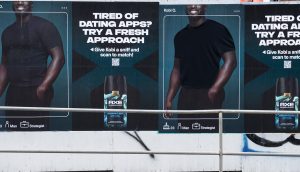PHD recognizes it needs to stay ahead of the curve in the rapidly changing media world, says PHD Canada president Fred Forster. In a new book titled Media Agency 2014: PHD on the Future of the Media Agency, launching in Canada this week, PHD folks make several predictions about the changes in consumers lives and the technologies they use, and what it all means for their teams. Some the changes the book mentions, for instance the ‘blur’ between TV and online, are already gaining speed in Canada and changing the role of respective ebuyers, says Forster, while others, like the blur between PC and mobile, are taking longer to come to fruition.
‘The reality is the richness of the online experience is so much greater than the more static, for lack of a better word, television experience,’ Forster tells MiC. ‘Online you have a much better opportunity to interact with content.’ This is why, he says PHD and other agencies are starting to think about the best way to adapt their employees and their skills ‘to be able to look at these opportunities holistically, when a client has a communication that’s suited to an audio visual platform.’
The book will be promoted on two superboards in Toronto, with just ‘2014’ written on it and a QR code – which, if photographed with a mobile phone will take the individual to the e-book with their mobile device, explains Forster. Or, you can access the book for free via the PHD blog, PioneeringPHD.com, and there are also hard-copy editions for those who like to turn pages.
Media Agency 2014 targets readers described as ‘anyone who wants to move the meter a little bit; anyone who is interested in finding ways to use media more effectively in an environment that is fraught with anxiety’. As such, it provides examples of upcoming changes five years from now, for instance ‘how we communicate will have dramatically been revolutionized by Google Wave – a new platform that converges email, instant messenger, wiki-software and micro-blogging.’ And predicts that companies and brands will be creating their own software for this fluid environment, providing a wealth of new advertising opportunities.
Which is why, Forster says, it’s imperative brands start experimenting with new media now. ‘Frankly, there’s probably too few clients who are moving fast enough into these new media opportunities. I think the ones that do are going to win,’ says Forster. And more bluntly: ‘And if you want to maintain a slow erosion, well then keep doing what you’ve always done.’























